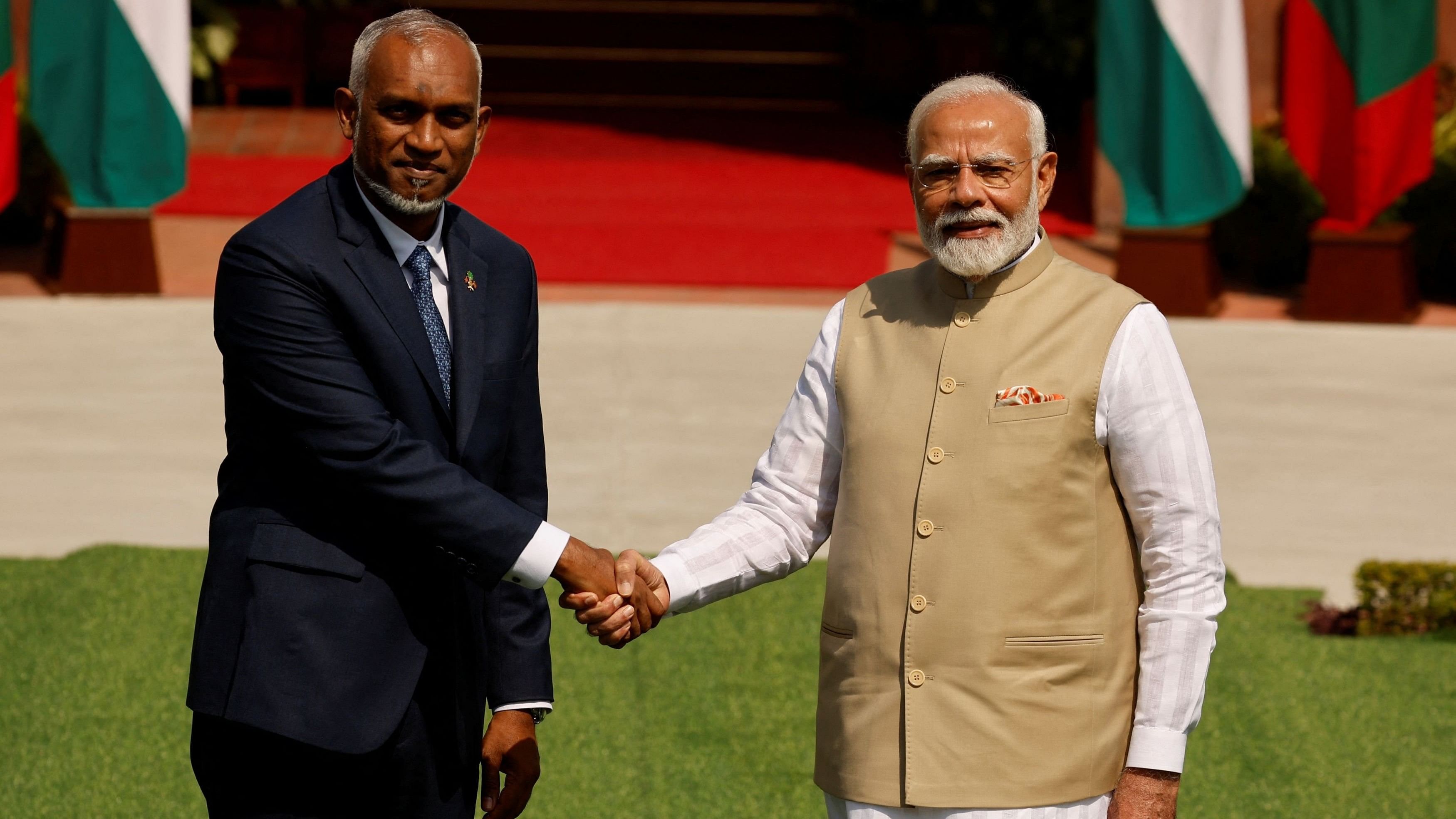
Maldives' President Mohamed Muizzu shakes hands with Indian Prime Minister Narendra Modi at Hyderabad House, New Delhi, India, October 7, 2024.
Reuters
It took the better part of the year, but India and Maldives appear to have worked hard at resetting bilateral ties. Both countries need each other, albeit for different reasons. This is the stark realisation after months of barbs, insults and a social media-driven boycott by India of Maldivian tourist destinations, which in turn led to President Muhammad Muizzu declaring from the red carpet that Beijing rolled out for him that India was a threat to the sovereignty of Maldives.
The Indian Ocean archipelago nation, whose chain of 900 islands is spread over vital sea lanes connecting the Indian Ocean to the Pacific, is vital to India's strategic interests. Maldives, literally sinking under a $3.7 billion external debt, 40% of it owed to Beijing, and a twin deficit crisis -- fiscal and currency -- realised that it could go under, like Sri Lanka did in an identical situation, or reach out for help. Beijing was less than lukewarm about bailing out Male.
Fittingly, Delhi, which has always called itself the first responder to neighbourhood crises, stepped in, as it had done with Colombo. The results are for all to see. President Muizzu's visit appears to be a win-win for both sides.
One outcome of the visit was a $750 million currency swap arrangement that will cushion Maldives until 2027. The other was an announcement that Delhi and Male will begin discussions on a bilateral Free Trade Agreement. Maldives signed its first FTA with China some years ago, but the previous government did not operationalise it.
It is to be seen if the Muizzu government will do so, as it has promised to do by January 2025. And after a high-decibel spat earlier in the year that led to India withdrawing some 80 defence personnel from the Maldives at Muizzu's insistence, Delhi is set to continue its “defence cooperation”.
Per the joint “vision for comprehensive economic and maritime security partnership”, Delhi will carry on with development of a harbour at Uthuru Thila Falhu for the Maldivian National Defence Force, a contentious project for which a 2021 bilateral agreement is now a subject of a Maldivian parliamentary inquiry. India will also provide “defence platforms”, a possible reference to ships for the Maldivian coast guard, and surveillance equipment such as radars.
Indian infrastructure projects, including the Greater Male Connectivity Project, and housing developments are to continue. Muizzu's visit also saw the launch of the RuPay card in the Maldives. To boost tourism from India, a Maldives consulate will come up in Bengaluru.
India will set up a reciprocal consulate in Addu, the country's second-largest city, located in its southernmost atoll of the same name. Overall, what the turnaround in Delhi's relations with Male shows is that there is no substitute to hard diplomatic legwork. Certainly, signalling via social media is not the way to conduct bilateral relations. There will be hiccups aplenty, but Delhi must guard against big-footing a small but important neighbour.